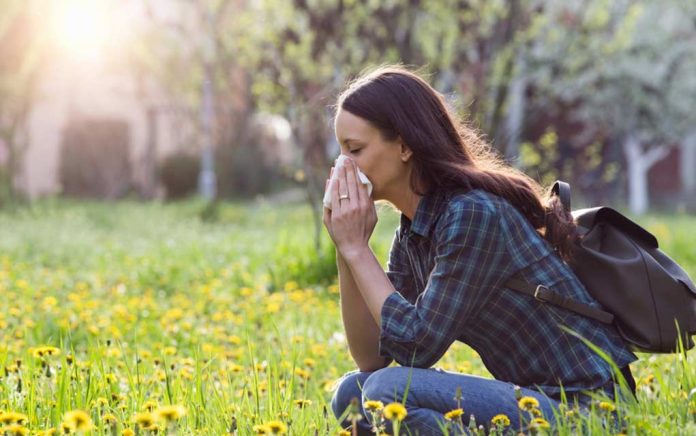
(HealthyResearch.com) – When flowers and trees start blooming, eyes and noses start itching and running. The more time you spend outdoors, the worse seasonal allergies become. If you suffer from seasonal allergies, try these four tricks to treat your symptoms.
1. Minimize Time Outdoors
Keep an eye on the seasonal allergy weather index. It might help to target days to stay inside when pollens or molds are high. Some other outdoor seasonal allergy strategies include:
- Take allergy medication before being outside.
- Wear a mask outdoors, as well as sunglasses or goggles when gardening, to help protect sensitive eyes from allergens.
- Limit the amount of time outside during the peak allergen times of day.
- Avoid hobbies that might trigger allergies like gardening and flower arranging.
2. Control Your Indoor Environment
Avoiding outdoor allergens might help, but indoor allergies might still make eyes itchy and watery. It’s possible for grass, pollen and other potential allergens to be tracked in from outside. Indoors, consider taking the following steps:
- Dust and clean the house regularly. Use a good vacuum that has a HEPA air filter for allergens.
- Close windows and doors during allergen season.
- Have good quality air filters in the central air conditioning units. Be sure to change them regularly. Find ones with good ratings that are known to help eliminate allergens in your home.
- Brush and wash your pet often. Avoiding excess fur, dander and outdoor allergens on your furniture and in your air may help.
3. Take Seasonal Allergy Medication
During allergy season, medication might help combat the symptoms. Some over-the-counter medications for allergies include:
- Antihistamines — These medications work by blocking or reducing histamines produced by your body in response to allergens.
- Nasal decongestants — These medications can help relieve congestion.
- Nasal allergy sprays —- Often, these are nasal corticosteroids that help reduce inflammation and relieve allergy symptoms.
- Antihistamine/decongestant combination — One pill, two purposes: combining a histamine blocker with a decongestant often provides more relief but can cause sinuses to become very dry.
Many of these medications are available over-the-counter at your local market or pharmacy. A pharmacist might be able to recommend a specific over-the-counter medication if symptoms are described.
4. Flush Your Sinuses
Not being able to breathe, whether from allergies or from something else that clogs your sinuses, can make you miserable. Consider trying a neti pot with a saline solution to help clear your sinuses and nasal passages. Other people prefer saline mists or even saline rinses. No matter what the cause of your congestion might be, keeping nasal passages clean may help improve breathing and make you feel better.
These simple steps might make the difference between feeling well or suffering through another allergy season. With the sun shining brightly and flowers blooming all around, nobody has time to be suffering from allergies. If you need additional help with your allergies, talk to your healthcare provider. There are additional options available that might bring you relief.
~Here’s to Your Health & Safety!
Copyright 2020, HealthyResearch.com
















